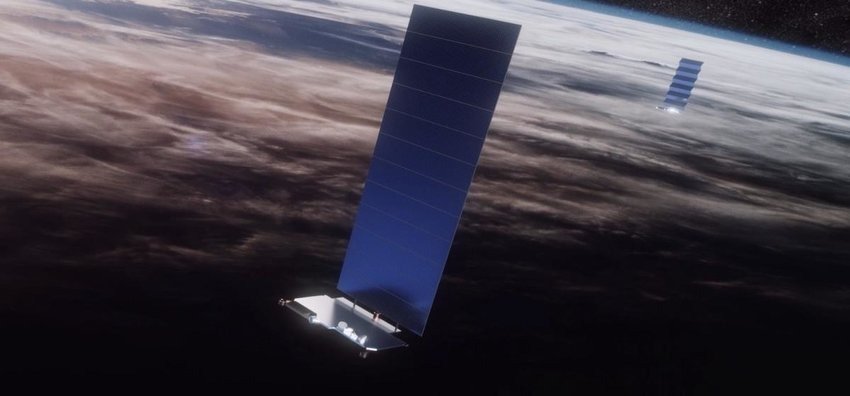There are at least four well-funded companies focused on competing to supply broadband from space in low-earth orbits. The market for these services is vast, but it particularly benefits shipping, as providers say they can offer seamless connectivity around the globe.
Richard Branson’s Virgin Orbit, Elon Musk’s Starlink, Kepler Communications, a Canadian venture capital-backed provider, and an independent called OneWeb are moving very rapidly to set up the infrastructure needed for this space (Amazon also has a pilot project underway, but is reportedly holding back on investment to see how the competition fares). All say that they will provide internet coverage where none would previously have been possible.
The race is heating up. On Tuesday, Elon Musk announced that his SpaceX Starlink project, which aims to deliver global broadband service through a satellite constellation, has shipped 100,000 terminals to customers. On August 21, OneWeb launched 34 satellites in an effort to complete its network. And Richard Branson has planned a $3.2 billion Nasdaq listing for Virgin Orbit in the fourth quarter of this year.
Low-earth orbit (LEO) means an orbit between 160 and 2,000 kilometers above the earth, Deloitte explains in a report. Low-earth orbits have a short orbital period (approximately 90 to 120 minutes) and are commonly used for remote sensing, human space flight, and data communication. Satellites in this orbit can only communicate with a small portion of the earth’s surface at any given moment, which is why a larger number of satellites are needed for global coverage.
The International Telecommunications Union forecasts that there will be 1,000 such satellites in orbit this year.
Morgan Stanley estimates that the satellite broadband market could be worth as much as $400 billion by 2040—fully 40 percent of the estimated $1 trillion global space industry that year.
The potential global market for shipping alone is valued to reach $46.50 billion by 2028.
What makes this industry so potentially profitable is the vast demand for connectivity.
“Wave after wave of new technologies have made it easier and easier to say connected. As this ability has spread, consumers, companies, and governments now expect to be able to stay connected no matter where they are—in isolated and rural areas, at sea, in the air, and everywhere in between,” Deloitte writes.
The advantage of LEO communications for shipping is low latency – connections are smooth and reliable – and long reach, as the proliferation of low-earth satellites is already providing connectivity where it was not possible previously.
LEO connectivity has already changed the way ships operate, according to one analyst.
“Maritime operations are generally becoming more digital, with many jobs and processes now done using the internet rather than paper. From electronic forms, navigation chart downloads, vessel monitoring, and port communication to business emails, phone calls, and transactions.
Cargo ships no longer have to abide by the traditional route of direct satellite communication, which is very expensive. Now, they can use ‘voice over IP’ for communications that run on the data network of the satellite. These LEOs allow workers on cargo ships to have more or less the same communication tools as those in an office, enabling them to stay in touch with colleagues and families at all times,” he writes.
One major concern for the industry is the fact that all of this technology is untried.
“The advanced satellite buses and manufacturing techniques that are making this new generation of satellites possible are relatively new. While these techniques are necessary to meet megaconstellations’ short timeframes for construction, launch, and deployment, companies should invest enough in designing and testing the outputs to create robust, reliable systems that will work for their lifetime in orbit. If there is a problem with a satellite, companies should make sure that it can be quickly and safely de-orbited. SpaceX has already lost three Starlink satellites from its first launch of 60 (which will passively de-orbit and burn up in the atmosphere),” Deloitte points out.
This is not keeping operators from forging ahead, however.
As of late May 2021, SpaceX had launched more than 1,730 Starlink satellites overall. The constellation is now providing broadband service in select areas around the world, as part of a beta-test program. Full service in certain locations is expected to start in September.






Click here to change your cookie preferences